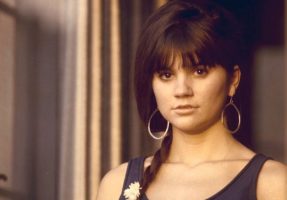I have written several times of my admiration for Linda Ronstadt, whose singing voice was silenced a decade ago by Parkinson’s Disease. Now comes “Linda Ronstadt: The Sound Of Her Voice,” a documentary that reminds us how robust her talents were, from pop ballads to outright rockers, from standards to Broadway, and traditional Mexican music, too.
It starts with Ronstadt’s childhood, growing up in a house where everyone spoke English but sang in Spanish, and follows her to Los Angeles, where she got the attention of the music industry, particularly in her early days at The Troubadour. As her career grew, she had hit after hit and was soon filling arenas. At one point, she toured as the opener for Jackson Browne, who says he found it so hard to follow her that they often swapped, with Ronstadt closing the show as the headliner.
Along the way she (like Bonnie Raitt) had to overcome the image of a “chick singer” with an all-male band backing her. She found it difficult to be the only woman surrounded by men on the road and loneliness at home, as well as struggles problems with speed and diet pills.
After becoming the first female singer ever to have five platinum albums in a row, Ronstadt wanted to try other things — and wouldn’t let anyone stop her. She did Joe Papp’s production of “Pirates of Penzance” on Broadway (and on screen) with Kevin Kline. With Nelson Riddle, she did three albums of standards, calling them “songs I couldn’t not do.” She did the “Trio” albums with Dolly Parton and Emmylou Harris.
When Ronstadt told Warner Brothers that she wanted to do an album of traditional Mexican music inspired by her family heritage, the label’s president said no. She did it anyway, and when Warners finally agreed to release it, it became the biggest-selling Spanish language album in history.
Throughout the documentary, directors Rob Epstein and Jeffrey Friedman dig up great footage of Ronstadt performing, and show a slew of her contemporaries praising her. They all agree that while she didn’t write the songs, she sang them better, and made them her own (e.g. “You’re No Good,” which had been a minor hit for Betty Everett, but became a smash when Ronstadt did it).
At a time when we’re getting fictionalized versions of the lives of male classic rockers (e.g. Freddie Mercury, Elton John), it’s nice to see the real story of a woman from the same era who had a powerful voice, a powerhouse career, and the moxie to try different paths. It’s been ten years since Ronstadt’s last concert. Since then, the 73-year-old has only been able to sing in her head, but “The Sound Of My Voice” is a reminder of how influential she was, both in front of and behind the microphone.
I give the documentary a 9 out of 10.

